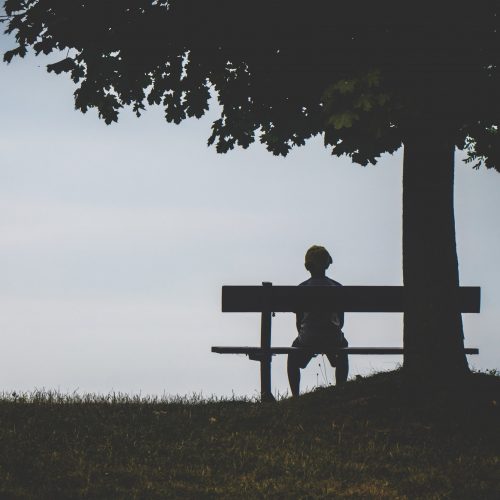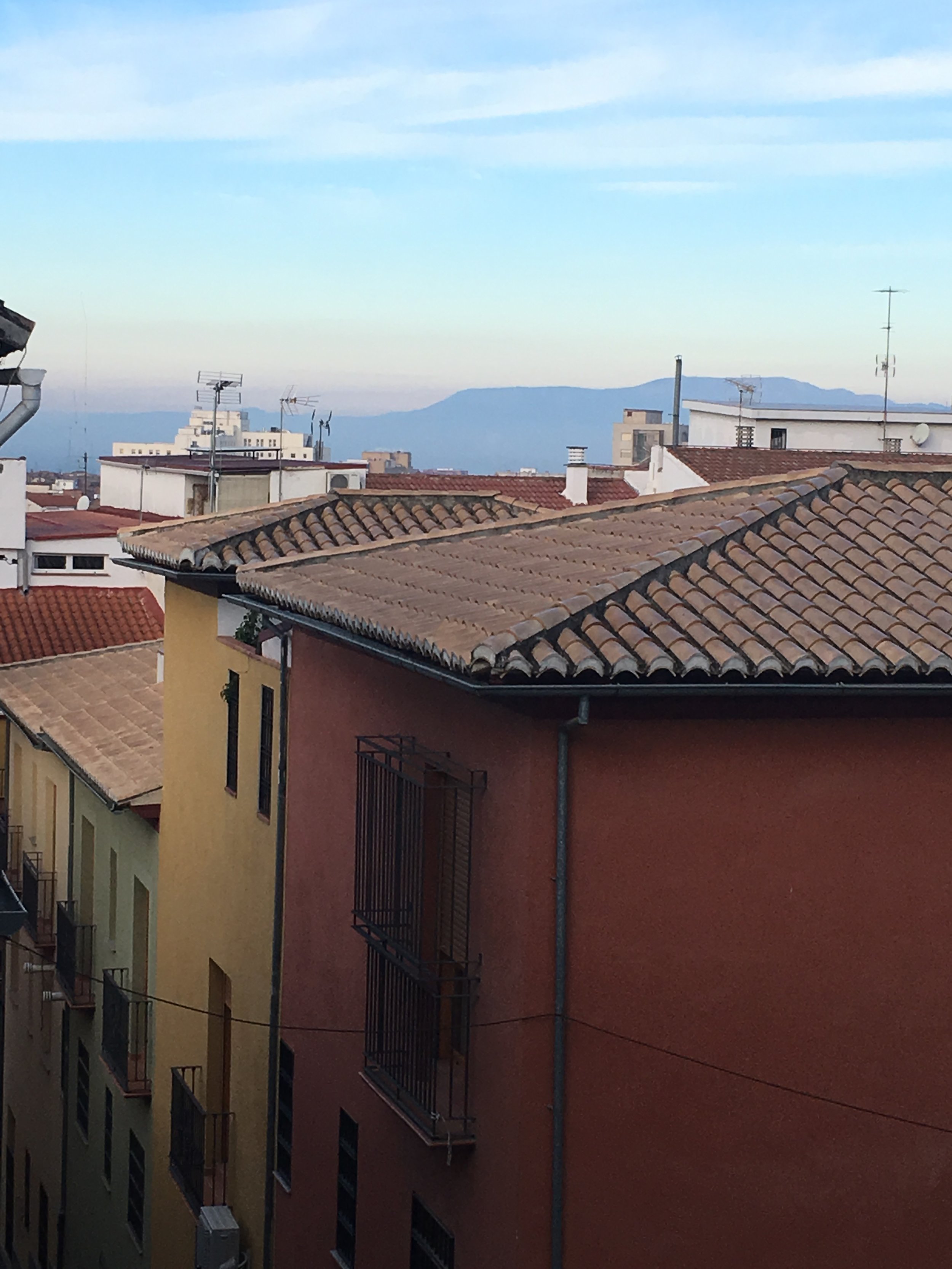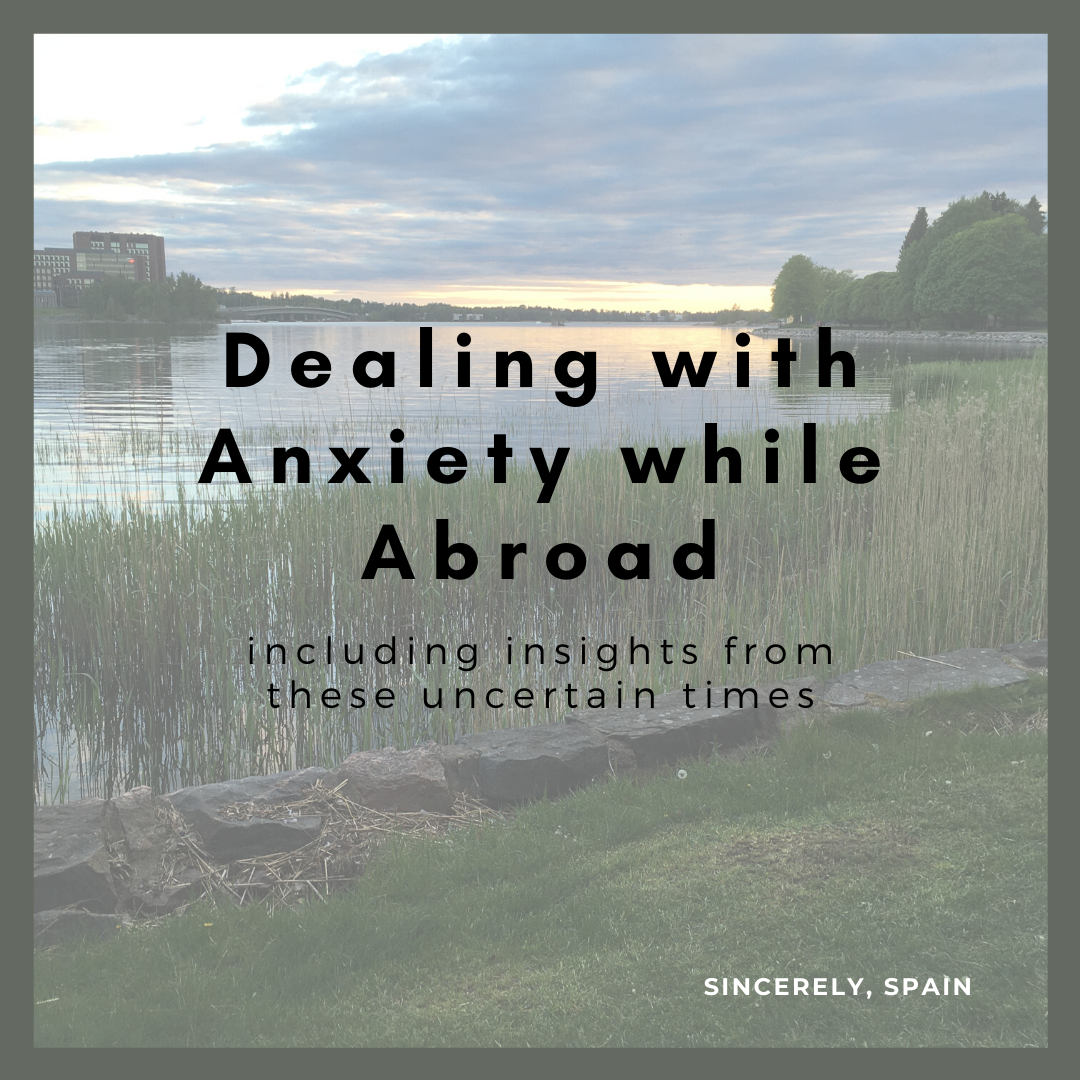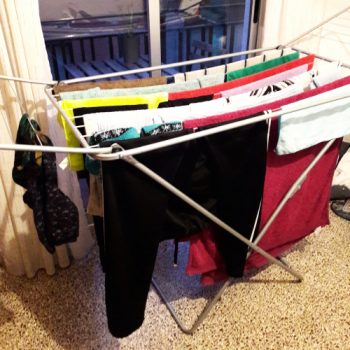
Help! I’m having Anxiety while Abroad
Disclaimer: while we are not healthcare professionals, we can see how stigmas around “living your best you” while living abroad can hinder our capacity to face our biggest issues and we want you to know that, if this is your situation, you are not alone. We encourage your to reach out to someone you care about or a healthcare professional if you are having any serious issues.
This post was originally written for December 18th, 2018. With the current situation, we have decided to update the post and add in some thoughts about the uncertain times we now face.
Dear Cassie,
 I had my first bout of anxiety around four years ago in June of 2016 when I was finishing up my master’s thesis. For reasons I will probably never truly comprehend, this situation pushed me over my emotional threshold and I found myself in a situation that I had never been in before and didn’t understand. Since this first experience, my anxiety does pop up from time to time, making my life more difficult than it needs to be. In addition, I have started to talk openly with other people about this and they tell me about their experiences with anxiety as well. I have realized that I am not alone (nowhere close in fact). Many people who I talk to have suffered from anxiety at some point or another and while you are living abroad this is no exception. In fact, if you are anxiety prone, I think it is easier to suffer the symptoms when you are in a different situation than when you are back home.
I had my first bout of anxiety around four years ago in June of 2016 when I was finishing up my master’s thesis. For reasons I will probably never truly comprehend, this situation pushed me over my emotional threshold and I found myself in a situation that I had never been in before and didn’t understand. Since this first experience, my anxiety does pop up from time to time, making my life more difficult than it needs to be. In addition, I have started to talk openly with other people about this and they tell me about their experiences with anxiety as well. I have realized that I am not alone (nowhere close in fact). Many people who I talk to have suffered from anxiety at some point or another and while you are living abroad this is no exception. In fact, if you are anxiety prone, I think it is easier to suffer the symptoms when you are in a different situation than when you are back home.
Now, we are facing a doubly hard situation, where we may be at home or abroad but we are facing a lot of outside stimulus around the uncertainty that is the coronavirus. It is strange to think that even 6 months ago, this is something that wasn’t really on our minds, but we are definitely paying attention now. People tend to tell me that I am ‘empathetic’ or that I ‘connect to the energy of other people’ and I have never felt this more than this time where people in general show more fear around the world. Because of this gift (I will call it a gift because it also helps me know when to reach out and connect to people when they are down), I have found myself in an interesting situation. I have stopped watching the news and the situation here in Helsinki, where I currently live, is mild compared to the places where most of people who I love are. However, I haven’t stopped talking to my friends and family around the world who are facing much more turbulent times and just knowing what they are going through, just trying to be there for them has been difficult for me.
I am not saying that I don’t want to talk to you if you are someone close to me, but I do know that oftentimes the worry of others pushes me into the circle of thinking “what if…” in a way that can be scary for me too. At the same time I have been having some amazing conversations with people who I love, all around the world, I have also been talking about the whole situation, a situation that I have no control over except for doing my part in a relatively low-hit area, and that isn’t always the best feeling. In case you are feeling something similar to what I feel, in order to help you understand that you are not alone, I want to talk honestly about what I personally go through:
What are my anxiety symptoms:
I can tell when I am anxious based on what I personally go through. I have talked to other people about what anxiety means to them, and the symptoms may be similar, but they may be totally different too. This is what happens to me:
 General nervousness: As a very active person, I have to be really careful when I start noticing myself as being nervous because sometimes I am just really busy. However, the better I get to know myself and my personal triggers, the easier it is to separate this feeling of being nervous because I am trying to do too much at once and general nervousness because I am feeling anxious. For me, this feels a bit like butterflies in the bottom of my stomach but, instead of being an amazing feeling, it is a feeling that kind of wants me to be sick. While this symptom isn’t necessarily the one that impacts my daily life the most as I can generally overpower it, it is a good indicator for how I am going to be able to deal with other reactions.
General nervousness: As a very active person, I have to be really careful when I start noticing myself as being nervous because sometimes I am just really busy. However, the better I get to know myself and my personal triggers, the easier it is to separate this feeling of being nervous because I am trying to do too much at once and general nervousness because I am feeling anxious. For me, this feels a bit like butterflies in the bottom of my stomach but, instead of being an amazing feeling, it is a feeling that kind of wants me to be sick. While this symptom isn’t necessarily the one that impacts my daily life the most as I can generally overpower it, it is a good indicator for how I am going to be able to deal with other reactions.
Lack of sleep: I am normally a really good sleeper (seriously, I can pass out just about anywhere), however, when I have anxiety, I have trouble falling asleep and tend to wake up earlier than I want to. For example, if I normally get up around 6:30 am, when I am having anxiety, I can easily wake up in a bit of a panic around 5:00 am and run through all the little things I might be worrying about—even if they aren’t big problems or normally wouldn’t have any impact on my sleep. This one is a vicious cycle because the less I sleep, the more prone I am to feeling anxious and the more anxious I am, the more I worry about getting enough sleep.
Lack of hunger/nausea: Again, against my normal habits, when I find myself suffering from anxiety, I have difficulty eating and may even find myself wanting to be sick if I make myself eat. As someone who did not sit through a single university exam without having candy next to me (for the sugar), it is hard for me to understand why my body is not asking for food and often have to check and make sure I am eating enough, something I never have to worry about on a normal basis. In my case, this feeling is stronger in the mornings and is a big problem because my brain doesn’t work well in the morning without eating. Not starting out the day on the right food also contributes to more worries about doing my job right or even just being there for my team, something that can lead me to be more anxious.
My tip: If I cannot eat my normal, breakfast I tend to eat a couple of spoonfuls of peanut butter as that usually can get me through the morning.
 Prevention is the greatest cure for anxiety:
Prevention is the greatest cure for anxiety:
I know this a really hard thing to think about before the fact, but when I get to a place where I am feeling anxious I can usually step back and recognize what the trigger was. For me personally, when I don’t step back to accept things as they are or grieve properly, these intense feelings can build up inside of me and slowly become overwhelming. When I am able to stop before I get to this point of not sleeping or eating well and dedicate time to whatever it may be that is bothering me I have a much higher possibility of not facing a form of anxiety that negatively impacts my ability to go about life.
One example that clearly sticks out in my mind is when I had to accept the death and attend the funeral of someone who I used to see on a regular basis. We were not super close, but his presence was in my daily life (and I still think I see him in the street…until I remember that he cannot be there). When I didn’t stop to process this death—something that is hard for me in general—and was on the go for two weeks straight after, I started to realize that I wasn’t sleeping and eating well. Once I figured out what my trigger was I was able to stop and work on the problem. However, if I would have given myself time to be with myself and really sit with what had happened in the first place (in this case, dealing with the death) I probably never would have gotten to the point where the little things were so overwhelming they woke me up at night.
So, for prevention, I would recommend doing two things I don’t always do: slow down and give yourself time to reflect. I know that we live in a fast paced world but I think that the times right now are allowing us to spend a little bit more time looking into our feelings and perceptions of the world, if we let ourselves. Personally, I try to spend time every day writing. drawing, walking, meditating, and/or doing yoga. This is time where I am not trying to accomplish something productive, but am trying to connect with myself. One of the newest practices I have started is called the ‘morning pages’ and you can read about it in the book The Artist’s Way by Julia Cameron. This practice has you do a brain dump for 30 minutes every morning of your thoughts, totally unfiltered and unstructured, and has really allowed me to work through some of the things I have been feeling. However, even if you know it might be there, under all your other feelings and business, it isn’t always possible to prevent anxiety, that is why I also want to go into how I deal with it.
How I deal with anxiety:
I am not going to lie, the first time I had anxiety I went to the doctor after not being able to eat for two days. I didn’t know what was wrong with me, was pretty freaked out about it, and I wanted medical help to get me through it. Luckily, my doctor was able to talk me down off the ledge and we came up with a plan—he recommended an herb-based capsule called valerian for insomnia and anxiety and told me to come back in two weeks if I wasn’t feeling any better. I honestly don’t know if this herb makes a physical difference but, usually, if I take one at night I manage to sleep through until my alarm in the morning meaning that (at least mentally) it works for me.
 In addition, my doctor recommended taking a step back and trying to find some peace with the things I was working through. Depending on what I am personally facing, this might mean watching a movie (or reading a book) that makes me bawl my eyes out; it might mean going for a long walk or run alone; or it might mean that I want to talk something through with someone I care about. I also have to make sure that I am giving myself enough time to sleep—say 8 hours instead of my normal 6.5/7—and eat with my family and friends so that I actually make an effort to stay on top of things.
In addition, my doctor recommended taking a step back and trying to find some peace with the things I was working through. Depending on what I am personally facing, this might mean watching a movie (or reading a book) that makes me bawl my eyes out; it might mean going for a long walk or run alone; or it might mean that I want to talk something through with someone I care about. I also have to make sure that I am giving myself enough time to sleep—say 8 hours instead of my normal 6.5/7—and eat with my family and friends so that I actually make an effort to stay on top of things.
Finally, one thing that I have found really helps me with my anxiety is connecting with people about it. I fully support talking about mental illness but I just didn’t talk with people about what I was going through at first. Now, if I am feeling anxious I am much more willing to bring the subject up with people who are in my life. Friends tell me their own stories about dealing with anxiety, coworkers support me if I need to work a little less, and, overall, I feel much more peace with the situation. In the beginning I felt like it was weird to have anxiety; now I know that it is pretty normal. By talking about it I am able to release one of the greatest fears I used to have around anxiety—that it made me weak.
Since my first visit with my doctor, I haven’t been back for anxiety-related reasons. However, I am both very aware of the different situations I am facing at any given time and extremely vocal (with people I trust) if I want someone else’s opinion on how I am doing. I won’t lie and say that I have conquered anxiety—it still pops its head up every once and awhile—but I am working on how to deal with the stressors and symptoms.
Note: I want to be very clear that all the information above is what happens to ME when I am feeling anxious and how I PERSONALLY deal with it. Like I mentioned, I am not afraid of asking for help and, if things ever get worse, I would be the first person going to the doctor/psychologist to try and find a way through it. Please remember that sometimes asking for help is not a sign of weakness, but the biggest sign of strength.
 Have you suffered anxiety? If so, let us know how you deal with it down below.
Have you suffered anxiety? If so, let us know how you deal with it down below.
Sincerely,
Claudia
P.S. If you are looking for a great resource with further advice on how to deal with anxiety, please check out this article from Drug Watch.




